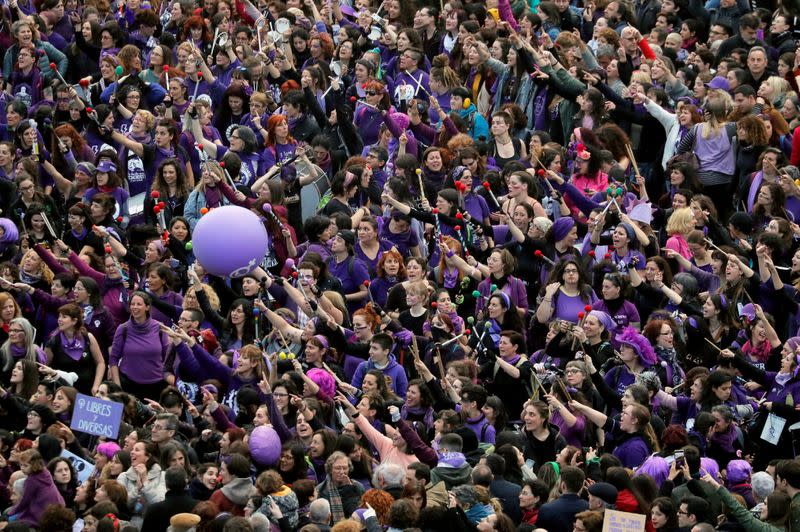Spain bans Madrid Women's Day marches after accusations 2020 event spread coronavirus

(Corrects March 4 story paragraph 9 to show Prime Minister Pedro Sanchez did not join cabinet members in marching last year)
By Inti Landauro
MADRID (Reuters) - The Spanish government on Thursday banned marches to commemorate International Women's Day on March 8 in Madrid after such marches last year stirred a bitter row over whether they were super-spreader events for the coronavirus.
"Madrid continues to be one of the Spanish regions with the highest infection rate as well as the highest number of hospital admissions," the central government's chief representative to the Madrid region told a news conference.
Jose Manuel Franco said the administration had received 104 requests for demonstrations on March 7-8, which would have brought at least 60,000 people to the streets of the capital.
"The problem is the size of the crowds that would build up in a few hours and in a few places," he said.
The number of infections per 100,000 people measured over the past two weeks has dropped sharply in the past few weeks across Spain to an average of 160 cases, but Madrid is the only mainland region where it is above 250 cases - a threshold the Health Ministry considers as "extreme risk" of contagion.
With 261 cases as of Wednesday, down from Tuesday's 273, Madrid still has the country's highest incidence of the virus bar the north African enclaves of Ceuta and Melilla.
A year ago, thousands of people, including half of Prime Minister Pedro Sanchez's cabinet, marched in Madrid at a time when the virus was already circulating in Spain. A week later the government imposed one of the strictest lockdowns in Europe as contagion and deaths soared.
Opposition leaders strongly criticized Sanchez for letting the marches happen, although the Health Ministry played down the role of the event in spreading the virus. Gender Equality Minister Irene Montero tested positive days after the marches.
Sanchez's government has made gender equality a key policy priority and 8M, as the day is known in Spain, was a big focal point of that drive.
After the ban was announced, Montero, a staunch feminist, said she would respect public health recommendations and would not participate in marches, warning though against any attempts to curb the feminist movement.
(Reporting by Inti Landauro and Nathan Allen; Editing by Andrei Khalip and Alexandra Hudson)

